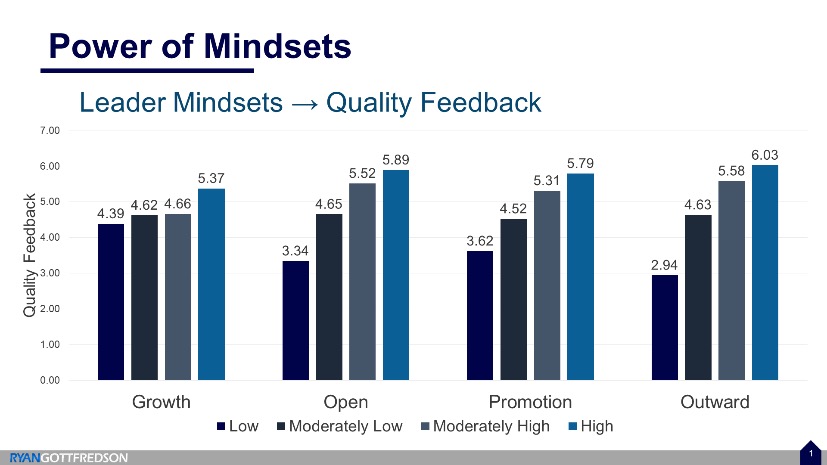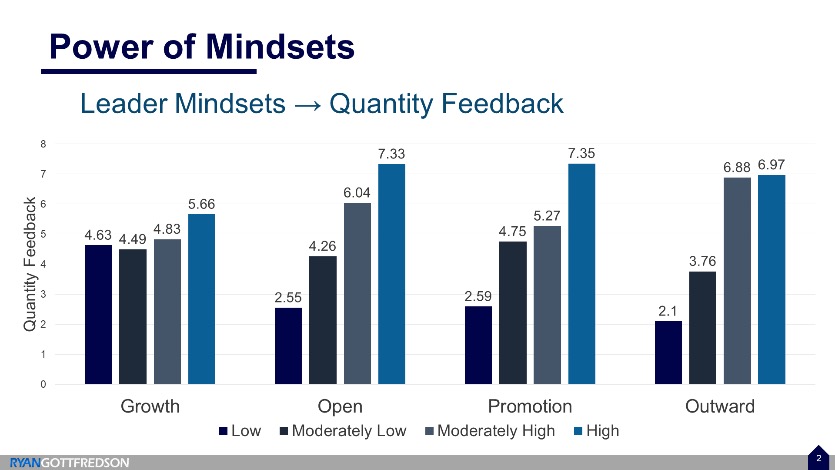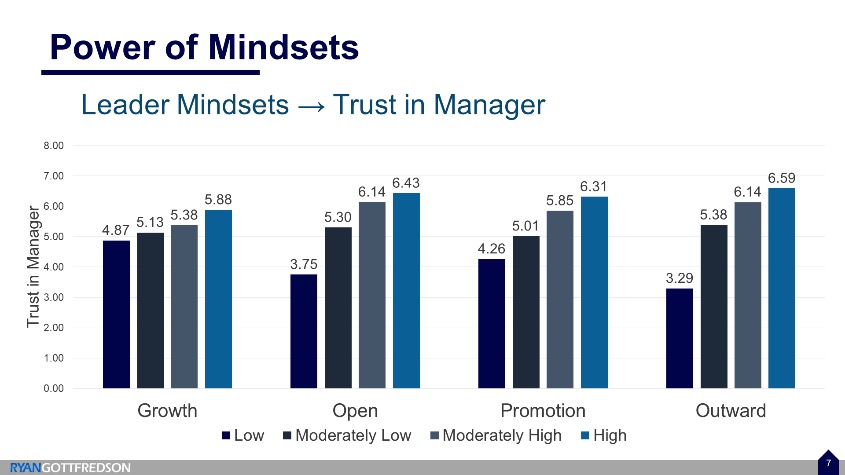What are Inward & Outward Mindsets?
This set of mindsets involves the value we place on ourselves relative to others. Do we see ourselves as being more important than others? Or, do we see others as being just as important as ourselves?
Pro-tip: If you haven’t read the article “What are Mindsets?” read that first before reading this article.
What are Inward and Outward Mindsets?
Recall a time when you:
- Failed to let someone into your lane even though you had your blinker on
- Failed to pull your weight in a work project
- Failed to give support to someone in need when you had the ability
- Failed to do something kind for a family member when it would have been easy for you to do
In these instances, you had more of an inward mindset. When we possess an inward mindset, we see ourselves and our needs as being more important that those around us. When this happens, we have a tendency to see others as objects. To the inward-minded person, our value is derived by how well we perform relative to others.
When we possess an outward mindset, we see others as being just as important as ourselves. This allows us to see others as people and to value them as such. To the outward-minded person, our value is derived by how well we help others be successful.
Of the four sets of mindsets, we likely fluctuate the most with regards to inward and outward mindsets. At one point of the day, we can possess an inward mindset, and then at another point in the day, we can possess an outward mindset. But, the Mindset Assessment is designed to assess your general approach toward others.

Why are these mindsets so important?
These mindsets shape how we see others, value others, and interact with others. For example, if you see a homeless person on a street corner and you have an inward mindset, you are likely going to naturally think something along the lines of: “Go get a job instead of standing on that street corner.” But, if you have an outward mindset, you are more likely to think: “What has happened in your life that has led you to believe that living on the streets is your best option?” Taking this perspective toward others is what allows us to have empathy, be much more sensitive to others’ needs, and follow the platinum rule: treat others as they want to be treated. If we want to be a positive influence in the lives of others and the world around us, it is essential to develop and consistently possess an outward mindset.

Research Summary of the Effects of Possessing Either inward or outward Mindsets
Out of the four success mindsets that I focus on, this is the one that has received the least research attention.
Most of the support has come from practice instead of research. I want to tell you about some of the practical findings, but first, let me share some of my research findings.
Mindset Study
A couple of years ago, I did a consulting project for an organization, and we had employees rate their managers’ mindsets. A few weeks later, we had those same employees rate:
- The degree to which their manager gave them quality feedback
- The degree to which their manager gave them quantity feedback
- Their emotional engagement
- Their turnover intentions
- Their psychological safety
- Their perceptions of inclusiveness in their group
- Their trust in their manager
In what follows, you will see a series of bar charts showing the effects of the different mindsets and these different outcomes. Hopefully, what you will notice is that across each of these outcomes, the gap between “Low” (bottom quartile) and “High” (top quartile) is generally the largest for outward mindsets.







Research Summary of the Effects of Possessing Either inward or outward Mindsets
The Arbinger Institute is a consulting group that focuses primarily on inward and outward mindsets when they work to improve organizations’ leaders and cultures.
One of their clients has been the Kansas City Swat Team (KCST).
For years, Kansas City police saw criminals through an inward mindset, as objects worthy of arrest and incarceration. With this mindset, it was not uncommon for them to use excessive force, spit tobacco on suspects’ furniture, or put bullets into potentially dangerous dogs. This led to SWAT receiving the most complaints within the Kansas City Police Department, on average two to three per month, costing the department an average of $70,000 per incident. That is about $2 million per year.
Supervisors recognized that something needed to change. That is when they brought in the Arbinger Institute to help them upgrade their outward mindsets. The effects were both large and immediate. Initially, the thinking and behaviors of SWAT team members changed. They started to see criminals as people, and as such, treated them with greater kindness. They stopped chewing tobacco on raids. And, they brought in a dog specialist to teach them how to better control potentially dangerous animals without shooting them.
The results of these changes were profound. The SWAT team progressed from enduring two or three complaints per month to not receiving a single complaint for over six years. Since they were seeing others more as people and treating them as such, those citizens were more willing to cooperate with them, leading them to recover more drugs and guns in the next three years than they had the previous decade.
If you want another example, here is one from Raytheon.
The Arbinger Institute has been doing their work for decades with incredibly replicable results.

Conclusion
Your Personal Mindset Report should have revealed the quality of your mindsets along the inward-outward continuum relative to over 20,000+ people who have completed the assessment.



